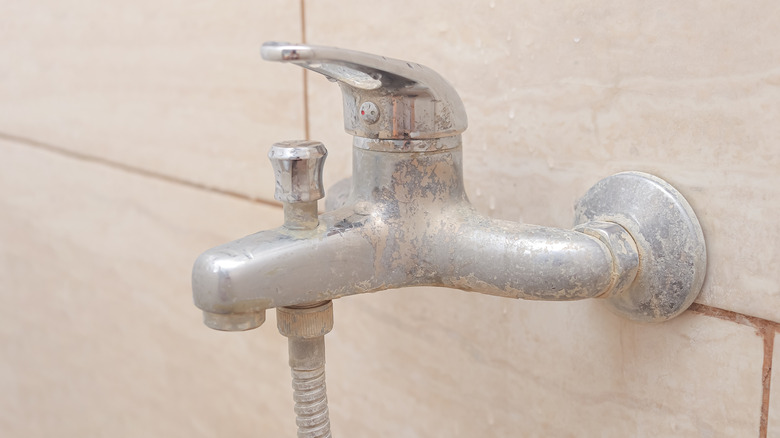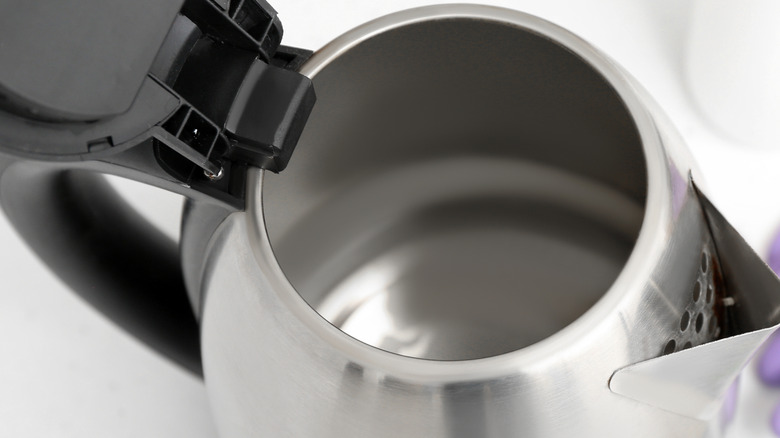How To Prevent Limescale From Building Up Before It Becomes A Problem
If you happen to live in a hard-water area, chances are you've dealt with limescale at some point. It's that chalky pale residue left behind by minerals when water evaporates. While it might look harmless, limescale can be quite problematic if left unchecked. Luckily, there are ways you can prevent limescale altogether. These include using a water softener, a water filter, and household ingredients, just to name a few. But why exactly should you prevent hard water buildup?
To begin with, limescale can wreak havoc on household appliances. Kettles, dishwashers, coffee makers, and washing machines are all prone to buildup. With kettles, for example, limescale builds up on the heating element, making the appliance work harder to heat up the water. This leads to higher energy consumption. Plus, you'll find yourself replacing your appliances sooner than you'd like to. The problem doesn't stop there. Pipes are also vulnerable. Over time, limescale can narrow water passages, reducing flow and pressure. Severe buildup can even result in leaks or blockages, which usually call for costly repairs.
On top of all that, limescale makes cleaning a hassle. Faucets, tiles, and shower doors often end up with cloudy stains that are tough to scrub away. This buildup makes homes look less hygienic, no matter how often you clean. Limescale can even affect your everyday comfort. While it isn't actually toxic, it can make the water taste weird. Hard water also makes soap and detergents less effective, leaving your clothes dull and your skin feeling dry. If you're not sure how hard your water is, there are quick ways to find out. That way, you can take the right measures.
Easy ways to prevent limescale
The good news is that you don't have to put up with limescale at all. With the right measures, you can stop it before it ever becomes a problem. One of the most effective long-term solutions is to install a water softener. These devices remove or neutralize hard minerals like calcium and magnesium from water. They can be on the higher end of the price spectrum, but you'll be saving even more money on energy bills down the line. If you're looking for a more convenient option, you can use water filters. These are available in different types, including incline, which you can install in a water supply line, and under-counter, which are ideal for bathroom or kitchen faucets.
Regular descaling helps, too. Household staples like vinegar or lemon juice can work wonders on kettles and faucets. By treating appliances once a month, you can prevent scale from hardening and becoming a nightmare to remove. Simple daily habits also make a difference. Wiping down bathroom tiles, taps, and shower doors after use, prevents deposits from drying in place. Meanwhile, make sure to empty kettles or coffee makers instead of leaving water standing for hours. Another trick is to mix baking soda with vinegar and pour the mixture down the drain. Add hot water after 20 minutes or so, and you'll be keeping limescale at bay. By the way, you can use a few common household ingredients to easily remove limescale as well.
Finally, don't underestimate the value of a professional inspection. Regular plumbing checks can help catch issues early on and prevent costly replacements later. At the end of the day, prevention is far more affordable than repair.

